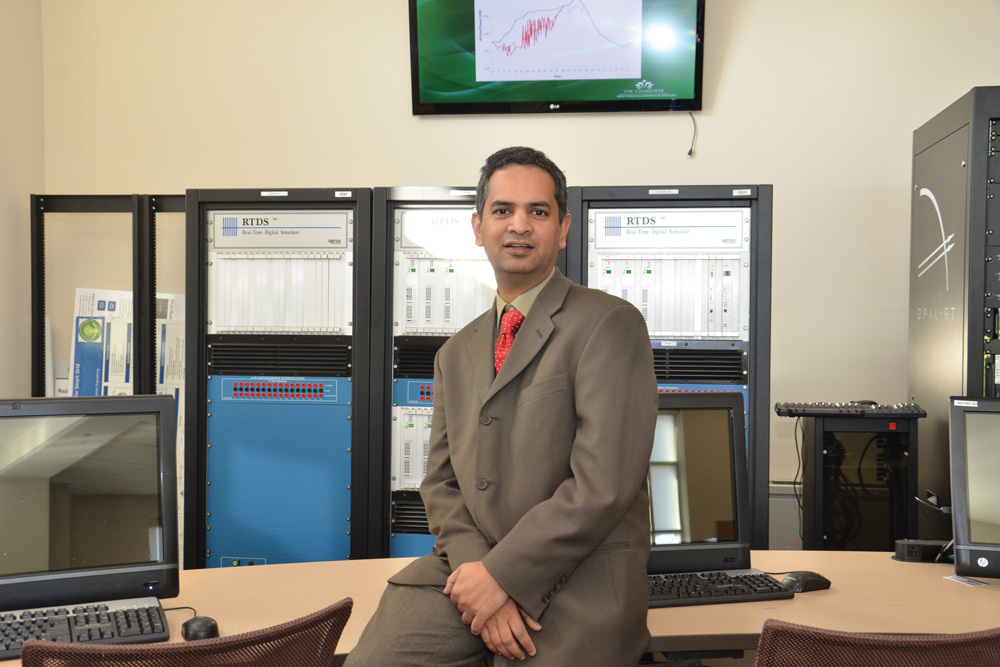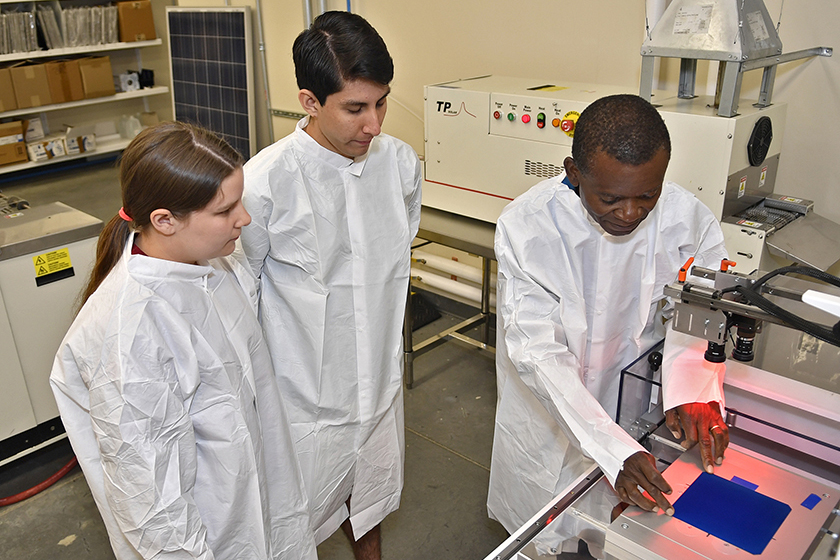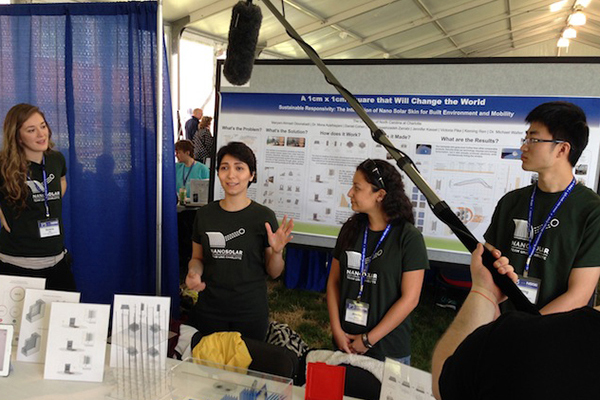Transforming Sunlight into Energy
UNC Charlotte fuels energy research and advances the future of the solar industry
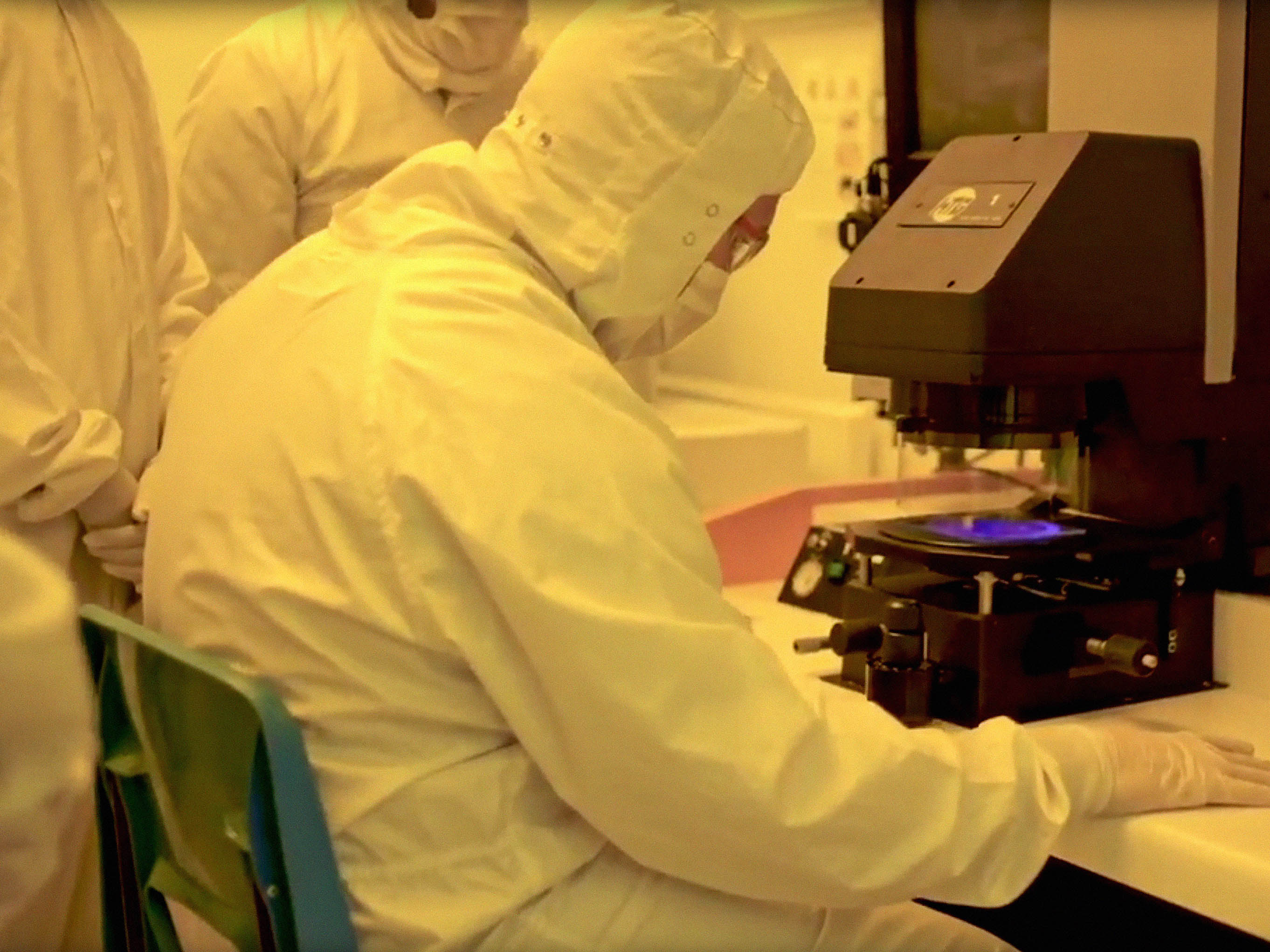
Industry Growth
The latest data from the U.S. Energy Information Administration cemented North Carolina’s position as the number two solar power producing state across the nation. Annual solar energy production in North Carolina jumped 36 percent in 2018, a much larger increase than experienced by solar leaders such as California, Nevada and Arizona.
Few industries are experiencing the rate of growth seen in the solar industry. According to the 2017 Solar Jobs Census, from 2012 to 2017, one of every 100 new jobs was in the solar industry, which now employs approximately 250,000 U.S. workers.
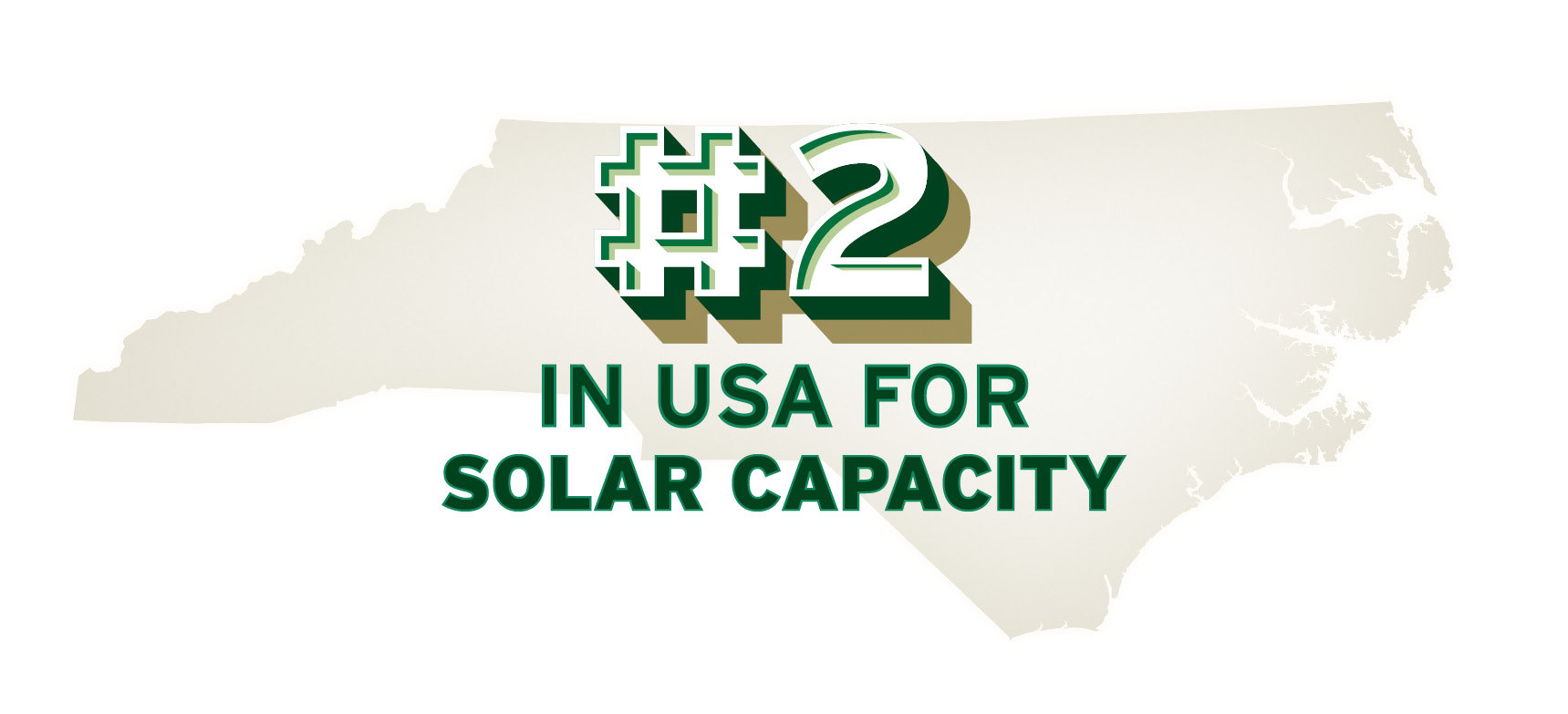
As the industry grows, North Carolina continues to cement its place among the solar energy leaders in the United States.
“In North Carolina we have the second-highest capacity of any state to connect solar power to the grid – behind only California,” said Dr. Mike Mazzola, executive director of UNC Charlotte’s Energy Production and Infrastructure Center (EPIC). “Actually, we’re number one in utility-scale solar power, because a lot of California’s generation is from residential roof-top solar panels.”
As North Carolina’s urban research university, UNC Charlotte’s mission is to deliver high-quality, high-impact research that addresses regional needs to improve and support its citizens and industry. Considering the state’s emergence within the solar energy landscape, this mission makes the William States Lee College of Engineering’s solar energy work extremely important.
Solar power production in North Carolina is expected to grow even faster in the next decade, thanks in part to N.C. House Bill 589. The measure, a collaboration between utility officials and solar interests, establishes a competitive bidding program and a solar power leasing program.
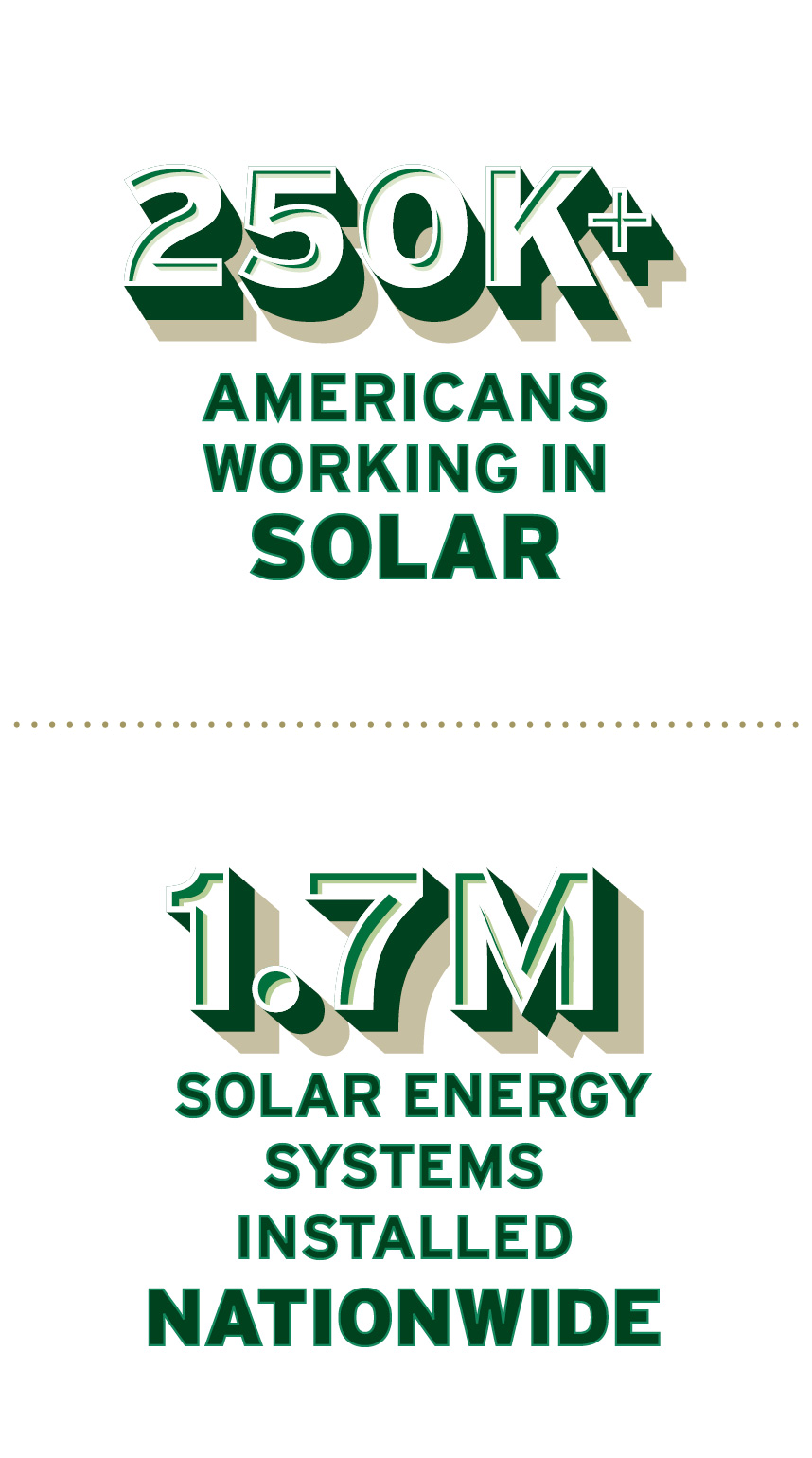
“By allowing third-party solar producers to sell power to the grid, residential solar production in North Carolina will take off in the next few years,” noted Mazzola. “With South Carolina and Georgia also adding capacity, making this region is an even greater solar producer.”
A growing solar industry creates an increased demand for solar engineers to fill the workforce required to design, build, operate and maintain it. To prepare these future engineers, the Lee College of Engineering offers numerous solar-related educational programs at the undergraduate and graduate levels.
EDUCATING SOLAR ENGINEERS
“The founding mission of EPIC is workforce development,” said Mazzola. “At the Lee College of Engineering, we give students a taste of renewable energy, including solar, as part of their education. These efforts help inspire students who are excited and motivated about the future of renewable energy.”
Classroom learning is focused on the principles of photovoltaics and tackling hands-on learning projects. Students apply that learning in the University’s state-of-the-art laboratories through research aimed at designing improved solar cells, developing technologies for delivering solar power to the grid, and advancing methods for storing and using solar power at maximum efficiency. Many students serve as research assistants partnering with their faculty mentors on solar-related research.

Related Article: Solar-Powered Mowing Robots for Solar Farms
“At both the undergraduate and graduate levels there is an educational environment and culture surrounding our students that deals with the very-real issues involved in renewable energy,” Mazzola noted.
COMPREHENSIVE RESEARCH
The University’s approach to solar energy research is to improve solar energy as it strives to become a key power source for the future.
The college of engineering impacts solar energy from the fundamentals of producing better materials for solar cells, to the incredibly complex issues of how to use and store photovoltaic generated power for the grid.
“With our state-of-the-art EPIC facilities, we are able to carry out solar research on a number of levels,” Mazzola said. “In our Photovoltaic Technology Research, Photovoltaic Integration, Renewable Power, Smart Grid, Flexible Energy and other laboratories, we study, develop and test solar energy research. This is important to our researchers and makes us an attractive full-service applied research partner for working on grants with business and industry.”
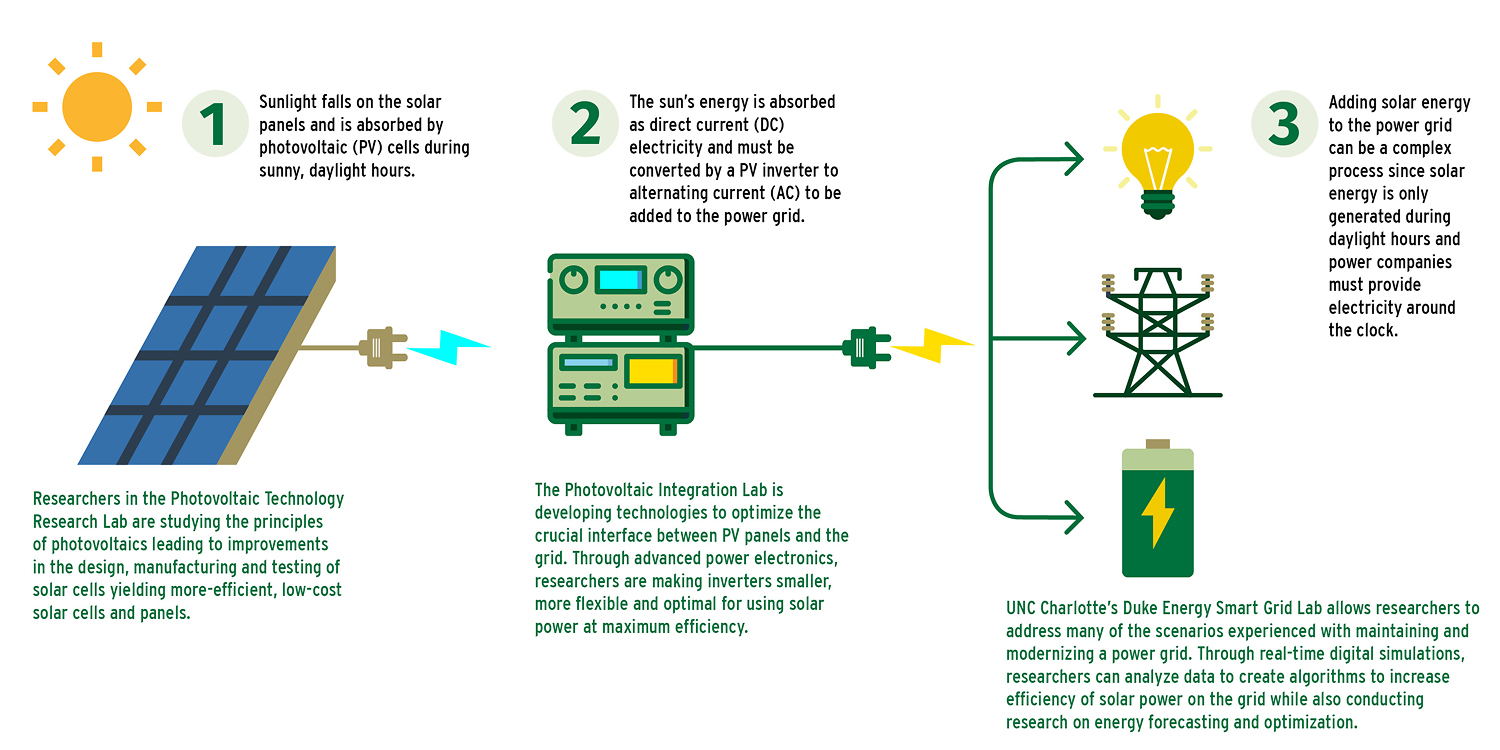
A key area of solar power research to watch is the prediction, storage and use of solar generated power.
“Since we don’t always know when people are going to turn on their lights and use power, there is always a degree of uncertainty about the timing of demand,” said Mazzola. “With solar energy now accounting for roughly 10 percent of generation during the day, questions of supply and demand become more complex. And it will only intensify as more people generate their own residential solar power to use and sell to the grid.”
LOOKING TO THE FUTURE
As the solar industry evolves, advanced solar technologies will continue to be developed and refined. As legislation makes solar power a more viable technology for home owners, its management will become more complex.
“Solar power engineers will be needed to solve future problems,” said Mazzola. “At UNC Charlotte, we are educating and preparing these engineers, and continually integrating more solar and other renewable energy studies into our curricula.”
The social sciences, and even political science, will play a bigger role in the future management of solar power, as consumer mindsets about energy use begin to change.
The commercial and residential sectors of solar energy are already on the minds of a number of startup companies that are partnering with the University to use its applied solar technology research for the purpose of commercializing photovoltaic power solutions.
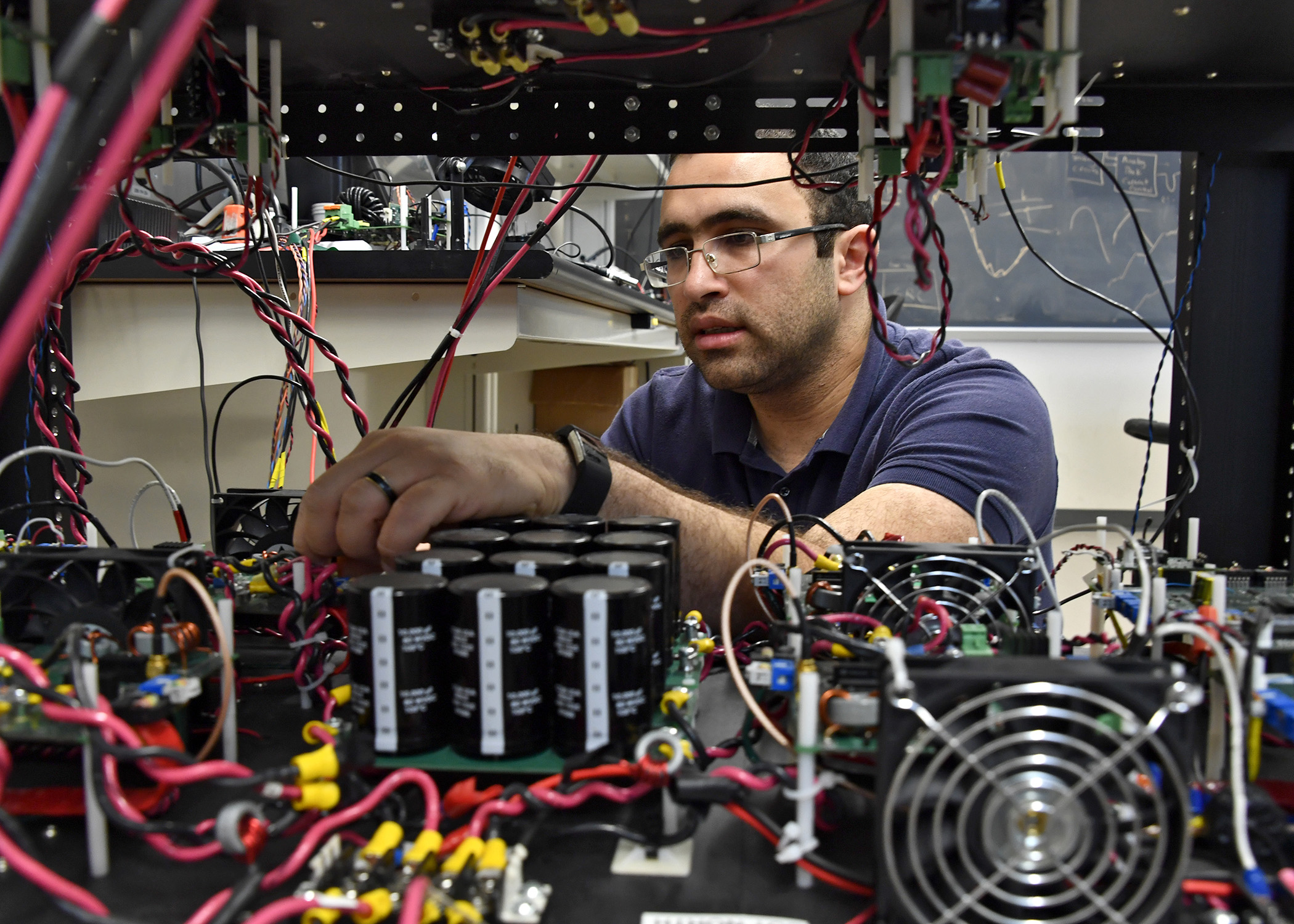
“We’ve become a leader in entrepreneurship,” explained Mazzola. “Beyond working on the fundamental problems of the technology, we are also spinning off a number of companies. This application of research directly impacts North Carolina’s future by creating jobs and strengthening our economy.
“Right now, the amount of power we generate follows the amount of energy load that is needed,” said Mazzola. “However, we’re seeing indications of a complete reversal in the future, which means load demand will follow generation capability. The research in our laboratories and technologies developed by our spinoff companies are going to be vital to the creation of and management of solar power. At UNC Charlotte, we’re looking forward to it. We’re here and we’re ready.”
RELATED ARTICLES
Battery energy storage system management for improving power grid reliability
Team creates solar-responsive design material for national contest
